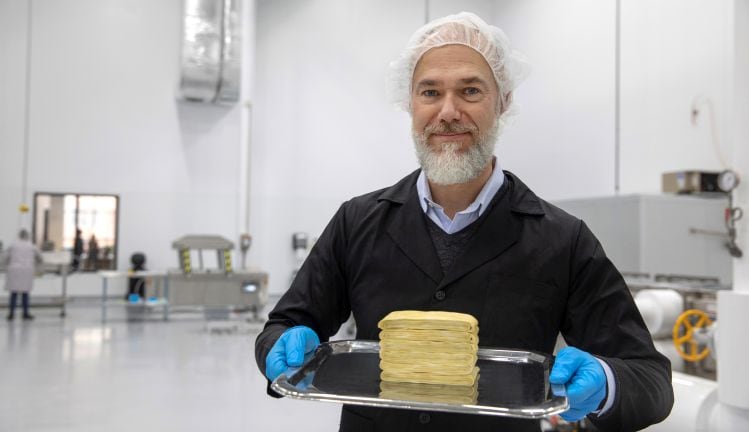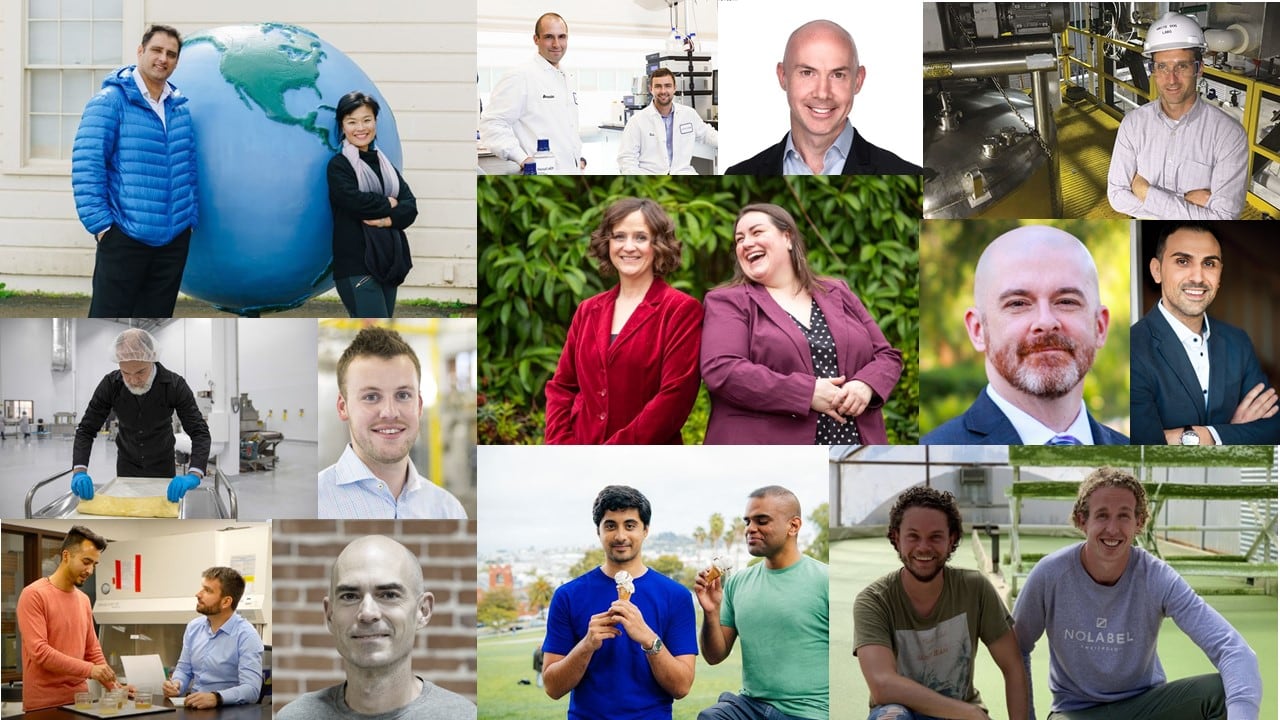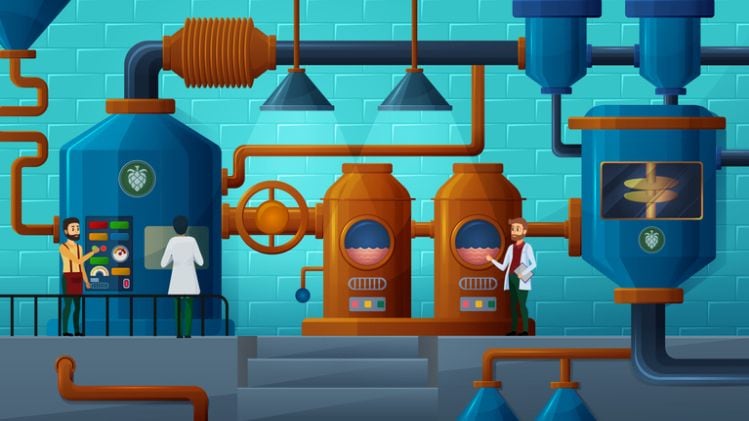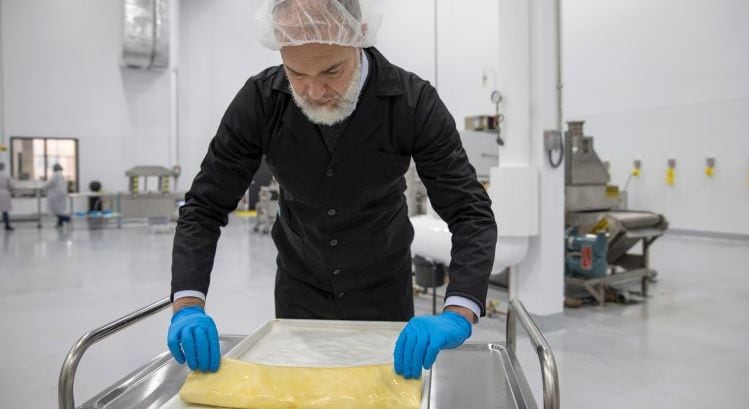The latest financing round - comprising venture debt and equipment financing commitments from Oxford Finance and Trinity Capital – takes the firm’s cumulative funding to $158m, and will help support the mid-2021 launch of the first products featuring Fy, a protein-packed whole food ingredient from an ‘extremophile’ micro-organism originally discovered in the geothermal springs of Yellowstone National Park.
The new hires include Dr Baljit Singh Ghotra from ADM (R&D), Emilie Runac from Bel Brands USA (manufacturing), Pat Dalugdug from KIND Snacks (sales), and Tom Frey from Cargill (engineering), who will help the company launch as a consumer brand ('Nature's Fynd') next year.
The appointments follow other high profile hires including Karuna Rawal (an ex Leo Burnett exec) as chief marketing officer; former Kraft Foods CEO Tony Vernon (who has joined the board); and Cargill exec Jim Millis (as CTO).
'Nutritional fungi protein'
The core ingredient – ‘Fy’ – will be manufactured at the firm’s new 35,000-square-foot manufacturing facility in Chicago’s meat packing district, which will come online early next year, while Nature’s Fynd CPG products containing Fy will be produced by a variety of co-packers using Nature's Fynd recipes, said CEO Thomas Jonas, who said the firm is exploring everything from animal-free cream cheese, chicken nuggets, beef sliders and pork dumplings, to chocolate mousse.
As for the messaging around Fy, Nature's Fynd tested multiple descriptors from 'mycoprotein' to 'mycelium' but found that 'nutritional fungi protein' scored the mostly highly with consumers, said Jonas.
Retailers, meanwhile, have proved very receptive to the company's innovations and branding, and we will likely see Nature's Fynd branded consumer products hit the market in mid to late 2021, he predicted.
Whole food ingredient with 50% protein, vitamin B12, vitamin D, iron, and calcium
Unlike some other startups using microbes to produce protein, Nature’s Fynd is not using genetic engineering (eg. synthetic biology to ‘program’ microbes to produce target molecules).
Instead, it is working with ‘extremophiles’ - fungal strains that can survive in extreme environments such as the volcanic springs at Yellowstone National Park - that naturally produce high levels of complete protein when grown in a controlled environment.
Rather than extracting the protein to make a concentrate or isolate, Nature’s Fynd is producing a whole food ingredient (‘Fy’) containing 50%+ protein, plus fibers, oils, and desirable micronutrients including vitamin B12 (highly desirable in a vegan protein), vitamin D, iron, and calcium.
And this aspect is quite appealing to retailers who have "seen the pushback" from some consumers about the 'ultra-processed' nature of some plant-based products, he claimed. "There is a discussion about the level of processing.
"We're also not using genetic engineering [the company is pursuing Non GMO certification with NSF]."
Labeling and regulation
A GRAS determination for Fy has been put together, and has been sent to the FDA, said Jonas, who said FY would appear on the ingredients list as nutritional fungi protein.
"We'll be very transparent about what it is, it's not a plant and it's not an animal, it's even better, it kind of has the best of both."
So could Fy be described as 'plant-based'? "It depends on regulations in different geographies," said Jonas, who said a suite of patent applications had been filed to protein the company's innovations, "but it's not a plant or an animal; it's fungi, the third branch of life."
Microbes are more efficient than animals and many plants at producing protein
Right now, producing protein – whether from peas and soybeans or cows and chickens – is resource-intensive and time-consuming, requiring large amounts of land, energy and water, observed Jonas in a recent interview. It takes years to grow animals, and months or years to grow plants, he said.
“Microbes can double [their biomass] in a matter of hours and the ‘growing season’ is 24 hours a day, seven days a week, 365 days a year.”
What makes ‘extremophiles’ alluring as a potential food source is that they have evolved to do more with less – that is, they can produce high quality protein with minimal inputs very efficiently in a highly acidic environment, which “drastically reduces” the risk of contamination and enhances food safety, claimed Jonas.
“There is this growing realization that microbes are pretty damn efficient. They make great protein and they do it really fast, you don’t have to plant a seed and harvest it six months later, and you can completely control the environment.
“There is a revolution going on in protein production and in the future I don’t think people care if the ‘cells’ are from cows or microbes. No one is attached to killing cows, as Pat Brown would say [the founder of Impossible Foods], they just like the meat.”
VIDEO/PICTURE CREDITS: Video b-roll supplied by Nature's Fynd; captions applied by FoodNavigator-USA. Main image of Yellowstone National Park @GettyImages-Bill-Vorasate




